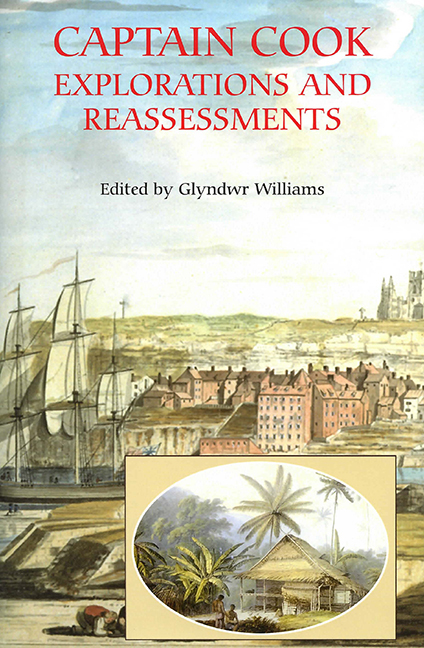Book contents
- Frontmatter
- Contents
- List of illustrations
- Contributors
- Acknowledgements
- Abbreviations
- Introduction
- Part I The Years in England
- Part II The Pacific Voyages
- 4 ‘Notwithstanding our signs to the contrary’: textuality and authority at the Endeavour River, June to August 1771
- 5 Tute: the impact of Polynesia on Captain Cook
- 6 Some thoughts on Native Hawaiian attitudes towards Captain Cook
- 7 Captain Cook's command of knowledge and space: chronicles from Nootka Sound
- Part III Captain Cook and his Contemporaries
- Part IV The Legacy of Captain Cook
- Index
6 - Some thoughts on Native Hawaiian attitudes towards Captain Cook
from Part II - The Pacific Voyages
Published online by Cambridge University Press: 25 October 2017
- Frontmatter
- Contents
- List of illustrations
- Contributors
- Acknowledgements
- Abbreviations
- Introduction
- Part I The Years in England
- Part II The Pacific Voyages
- 4 ‘Notwithstanding our signs to the contrary’: textuality and authority at the Endeavour River, June to August 1771
- 5 Tute: the impact of Polynesia on Captain Cook
- 6 Some thoughts on Native Hawaiian attitudes towards Captain Cook
- 7 Captain Cook's command of knowledge and space: chronicles from Nootka Sound
- Part III Captain Cook and his Contemporaries
- Part IV The Legacy of Captain Cook
- Index
Summary
Captain James Cook on his third voyage of exploration created the circumstances that resulted in the beginning of modern Hawaiian history, for a major consequence of the voyage was the opening of the northeastern quadrant of the Pacific Ocean, including the Hawaiian Islands, to world commerce and international politics. The effects on the eight populated Polynesian islands were revolutionary. The four domains ruled by high chiefs of Kaua'i, O'ahu, Maui, and Hawai'i were united into one kingdom. The subsistence economy was transformed by its role in trans-Pacific commerce. Its cultural life gradually blended with Christian-British-American values to create a new Hawaiian society that was neither ancient Hawaiian nor typically western. Change has occurred so swiftly over the last 225 years that Hawaiians today identify the changes that they feel have been most detrimental to them as a people and see them in a negative light.
Towards Cook, Native Hawaiians have mixed feelings. A number consider him to be a brilliant navigator, geographer, scientist – a remarkable and admired man. A larger number, if they think of him at all, are more or less indifferent about forming an opinion on the subject. The largest number, or perhaps it is better to characterise them as the most vocal, regard him with hostility and bitterness.
Today, Hawai'i is experiencing the force of the contemporary indigenous movements that seek to assert the dignity and richness of native cultures unhampered by misrepresentations of their past by western interpreters. In this context, it has not been difficult to identify Captain Cook with western imperialism, colonialism, dependency, capitalism, greed – whatever the popular epithet might be. And many do. A more serious group use the current interest in non-western cultures to conduct research into the ancient past for understanding themselves and their forebears. Even among these investigators Cook is not admired. Their first criticism points to the introduction of disease – venereal – through the Cook expedition. They cannot consider the massive depopulation of the Hawaiian people in the eighteenth and nineteenth centuries without pointing to this introduction on Kaua'i or Ni'ihau in January or February 1778, and again on the ships’ return in November. Secondly, they question Cook's allowing himself to be worshipped by the Lono priests as an incarnation of the god, Lono.
- Type
- Chapter
- Information
- Captain CookExplorations and Reassessments, pp. 94 - 109Publisher: Boydell & BrewerPrint publication year: 2004

